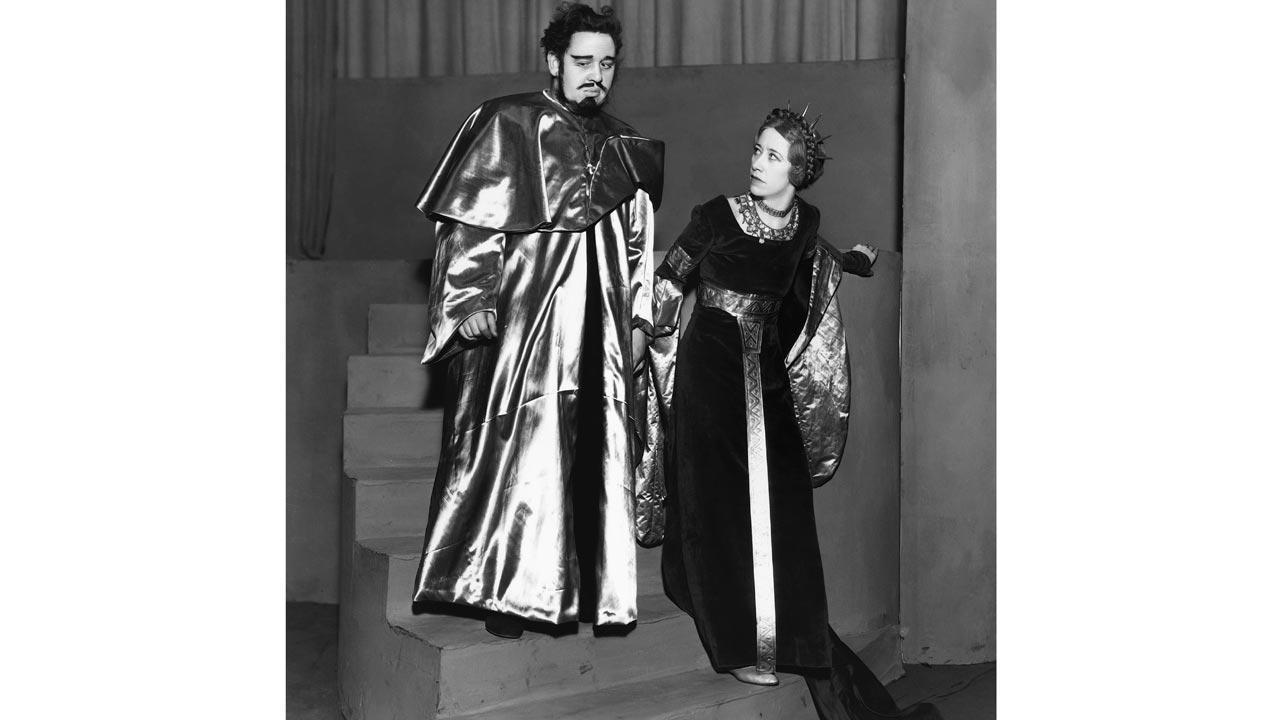Does Shakespeare impress the younglings looking for intrigue and drama? Is Elizabeth Bennett still a female role model? The students of English Literature have totally different takes on the iconic texts we grew up with

Saha notes that Shakespeare altered historical figures to appeal to those in power. Pic/Getty Images
‘Shakespeare’s Macbeth is not original’
ADVERTISEMENT
William Shakespeare’s Macbeth is a tragedy that explores ambition and the corrupting influence of power. Written in the early 1600s, the play follows the rise and fall of Macbeth, a Scottish nobleman and antihero, whose thirst for power ultimately leads him to his
own destruction.
“Macbeth, like most of Shakespeare’s works, is not entirely original,” notes Ananya Saha, a third year English Honours student at the Maulana Azad University, Kolkata. “He took inspiration from The Chronicles of Scotland by Raphael Holinshed, written in 1577, and combined it with historical events—particularly the killing of King Duncan I of Scotland, who was slain in battle by Macbeth’s troops in 1040.” She extends the analogy and adds that this blending of fact and fiction highlights a pattern of historical manipulation. “The way Macbeth’s story was reshaped reminds me of modern populist leaders, who adjust narratives to suit their agenda rather than prioritising truth and human rights.” Saha adds, “Banquo is portrayed in Macbeth as a virtuous and noble character. But history suggests otherwise. Why, then, did Shakespeare rewrite him as a the pinnacle of morality? Because King James I was on the throne at the time, and Banquo was believed to be his ancestor. Shakespeare couldn’t afford to depict him negatively.”
She continues in context of modern technology: “I think the witches are like Big Data and social media algorithms. Algorithms dictate what we see and shape our decisions. But ultimately, the choice is ours—just as Macbeth chose to act on the witches’ words.”
Meanwhile, Lady Macbeth—initially ruthless and ambitious—descends into madness due to overwhelming guilt, ultimately taking her own life. “Lady Macbeth’s insomnia—we all experience. We all experience this in some form. We stay up late, overthink, and experience mood swings. Today, we’d diagnose her with mental health issues like anxiety or bipolar disorder.”

Ananya Saha, student of English at Maulana Azad University, Kolkata, 21
Book: William Shakespeare’s Macbeth
‘Beth’s character should have raised issues about unpaid labour’
Louisa May Alcott’s Little Women (1868) is a coming-of-age novel following the March sisters—Meg, Jo, Beth, and Amy—as they navigate life in 19th-century New England.
“I believe that each character in Little Women ultimately prioritises their own desires,” says Sitara Pillai, a second-year BA English student at Sophia College, Mumbai.
 Louisa May Alcott’s Little Women (1868) is a beloved coming-of-age novel following the March sisters. Pic/Pinterest
Louisa May Alcott’s Little Women (1868) is a beloved coming-of-age novel following the March sisters. Pic/Pinterest
Many first-time readers are disappointed that Jo and Laurie don’t end up together. “But a second reading often reveals the deeper reasoning behind Jo’s decision—her refusal to settle for a relationship that doesn’t align with her ambitions. Her declaration that she ‘loves her liberty too much’ challenges the patriarchal notion that a woman’s fulfilment must come from marriage”. Beth, on the other hand, represents work that is often invisible and undervalued—caregiving and emotional support. “In a modern context, her character could reflect growing conversations about unpaid labour, self-care, and boundary-setting,” notes Pillai.

Sitara Pillai English student at Sophia College, Mumbai, 19
Book: Little Women by Louisa May Alcott
‘Mr Darcy was emotionally unavailable’
Jane Austen’s Pride and Prejudice (1813) is a novel of manners that explores themes of love, class, and social expectations in early 19th-century England. At its heart is Elizabeth Bennet and her lively banter with the enigmatic Mr Darcy.
 Elizabeth reminds us to stand up for ourselves. Pic/Pinterest
Elizabeth reminds us to stand up for ourselves. Pic/Pinterest
“When people read Pride and Prejudice for the first time, they view it as a love story,” says Akansha Sinha, a third-year BA English Honours student at Christ University, Bangalore. “While I understand this, I believe Elizabeth’s character represents much more today”.
She reflects the 21st-century woman—one who refuses to settle and demands the freedom to make her own choices. “Elizabeth reminds us that it is okay to push back and stand up for ourselves,” she continues. “Mr Darcy is a man written by a woman for women,” Sinha remarks with a laugh. “But if one were to analyse Darcy’s character today, and a man behaved like that in today’s world, I’d say he was emotionally unavailable.” She acknowledges, however, that Darcy undergoes significant character development, reinforcing the idea that personal growth is essential.

Akansha Sinha, student of English at Christ University, Bangalore, 20
Book: Pride and Prejudice by Jane Austen
 Subscribe today by clicking the link and stay updated with the latest news!" Click here!
Subscribe today by clicking the link and stay updated with the latest news!" Click here!







